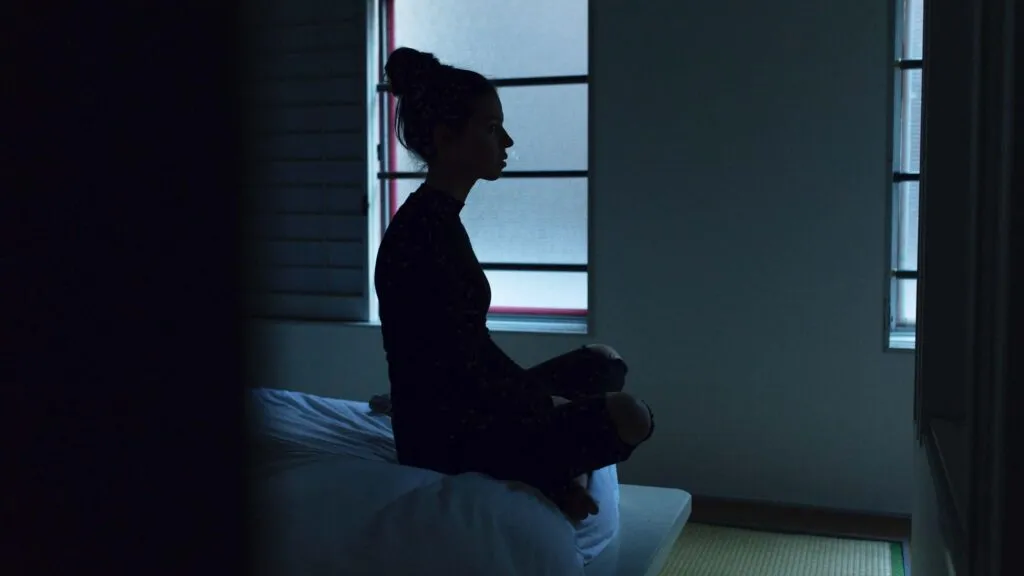Last Updated on November 12, 2021
Many people experience pre-travel anxiety before a trip, whether it’s their first trip or their tenth. Whether you’re scared of flying or feel stressed about packing for your trip, there are ways to minimise your anxiety.
Travelling can be (and should be) a wonderful experience, but planning for a trip can leave even the savviest, most experienced travellers with knots in their stomachs and butterflies in their chest. Have you packed everything you need? Will you get to the airport on time? Will everything run smoothly back home while you’re away? Maybe you have a fear of travelling abroad, or anxiety about travelling alone. The list can sometimes feel endless, and the lead up to a trip sometimes becomes stressful, rather than a time of enjoyable anticipation.
If you’re familiar with feeling anxious rather than excited in the weeks leading up to your trip, you’re not alone. Here are our tips for dealing with pre-travel anxiety and conquering your nerves.
So first things first – what is travel anxiety?
According to Calm Clinic, travel anxiety is very a common and complex issue, causing people to feel anxious or depressed when preparing for a trip and the subsequent weeks leading it up to it. Some people have an underlying fear of travel, which manifests as anxiety in the lead up to a trip. Some travellers have an open fear of flying that causes stress, others are influenced by travel ‘horror’ stories they’ve heard from others, and some people worry about things like packing or missing home. If you experience general anxiety, that can also increase your chances of experiencing pre-travel anxiety.
It’s also unlikely that there’s one single cause of travel anxiety. By recognising the symptoms of anxiety before a trip; shallow breathing, restlessness, nausea, racing heart, tight chest or excessive fear and worrying, just to name a few, you can acknowledge the pre-travel anxiety and then work towards a solution.

Fear of flying is one of the most common travel worries
Many people experience pre-travel anxiety because they have a genuine fear of getting on a plane. In fact, according to Calm Clinic, ‘probably the number one issue with travel anxiety is a fear of flying.’ This is due to a number of factors, ranging anything from lack of control to changes in air pressure and turbulence. They can all contribute to extra stress, and as most travel does involve flying, it makes sense that these fears exacerbate your pre-travel anxiety. Just know that you’re not alone!
Tips for coping with pre-travel anxiety
1. Identify the source of travel anxiety
By pinpointing exactly what’s causing your anxiety, you’ll be able to address the problem and find effective coping methods. Write down a list of everything that you’re feeling stressed about. Is it the fear of flying? Are you scared about travelling abroad on your own? Is it your first trip and you’re worried about getting lost or getting sick abroad?
Once you know the problems, you can tackle them. If you’re worried about your health, talk to a GP or pharmacist before you leave. If you’re travelling on your own, book a group tour for when you arrive (and read Jayride.com customer Jill Reynold’s story of the concerns she felt before her first solo trip this year and her follow-up story about how she coped with travelling to the UK on her own). If you’re concerned about money, set up a daily budget that you can refer to and see if you’re on track. Clarify the reasons in your head and then evaluate them, which will make it easier to eventually conquer them.
2. Look after yourself in the weeks leading up to your trip
Even if you don’t normally experience anxiety, practicing a bit of self-care in the lead-up to a trip is a great way to avoid any anxiety triggers and feel cool, calm and collected before you leave. Make time for exercise; the benefits of exercise for our health, including anxiety and depression, are well-documented – even just an hour of exercise a day can prevent symptoms of depression. So make time to stretch your legs and get your heart rate up in the weeks before your trip. Spending time with loved ones, eating healthy food, getting plenty of sleep, drinking water and indulging in activities you enjoy are also good ways to practice self-care.
Mindfulness and meditation are also great ways to deal with anxiety, so if you haven’t ever tried meditating, pre-travel is an ideal time to start. Headspace have a great app that you can download and is perfect for beginners. Meditation benefits to the nervous system include:
- Lower blood pressure
- Improved blood circulation
- Lower heart rate
- Less perspiration
- Slower respiratory rate
- Less anxiety
- Lower blood cortisol levels
- More feelings of well-being
- Less stress
- Deeper relaxation
A beginner’s approach to meditation, inspired by Gaiam, is quite simple with the following technique:
- Sit upright or lie comfortably.
- Close your eyes.
- Make no effort to control the breath; simply breathe naturally.
- Focus all your attention on the breath, without controlling its pace or intensity. Feel how the body moves with each inhalation and exhalation. Notice the movement of your body as you breathe. Observe your chest, shoulders, rib cage, and belly. If your mind wanders, return your focus back to your breath.
You may also like: How to Stay Healthy While Travelling
3. Research your destination
What are you going to do while you’re away? Where are you staying? Read up on where you’re going and plan ahead to alleviate any destination anxieties. Book your hotel, at least the first night, in advance so you know exactly where you’re going when you arrive. Note down emergency service numbers as a precaution and research how to get around. Have a rough guide of what you want to do and read other blogs about that destination for some inspiration. Not only will you likely feel more confident with a rough plan in place, it’s also a great way to get excited about your trip, too.
For more advice on this, solo traveller Marine Dansette gave us plenty of tips about doing research before travelling in our blog All You Need To Know About Going Solo.
4. Bring a photo of your destination
Tape it onto your desk at work, set it as your laptop background and bring a photo in your carry-on bag with you – anything to remind you of why you’re travelling in the first place and that you get to explore this fantastic destination!

5. Tell flight attendants
Remember that fear of flying is one of the most common phobias, so airline staff are used to dealing with these fears. Let flight attendants know that you’re feeling uneasy, and if you’re travelling with friends or family, let them know too. Sometimes knowing that someone is there to help can help alleviate symptoms of anxiety. It’s also a good idea to familiarise yourself with normal aeroplane noises. Rattling noises may sound alarming, but they’re perfectly normal (like rattling cabin luggage and shaking tray tables). By knowing what they are; you can eliminate any catastrophic ‘what if’ thoughts with the actual facts.
6. Get to the airport stress-free
Not having a game plan on how to get to the airport is a sure-fire way to stress out. The last thing you want is to be waiting for an on-demand service that may or may not be available, or sitting in a taxi watching the meter go up and up while you’re stuck in traffic. So find a way to ease your mind beforehand. Pre-booking an airport transfer means you already have peace of mind that your driver will arrive at a time that’s already agreed on, and will take you straight to the airport for a prepaid fee. Phew, one less thing to worry about last minute. You can search and compare airport transfers on Jayride.com.
You might like: 8 Reasons To Book An Airport Transfer
7. Don’t wait until the last minute to pack
Leaving anything to the last minute is a great way to feel stressed out, so don’t let the task of packing loom over you – just get it done. That way, if you want to add anything or take anything out you’ve got the time, rather than rushing around trying to pack an hour before you leave for the airport. That dreaded feeling of ‘have I forgotten something’ will ease if you’ve been prepared and packed in advance, and you’re less likely to have actually forgotten something. Sometimes that forgetful feeling is hard to shake though, no matter how prepared you are. Remember, unless you’re travelling somewhere very remote, chances are that if you do leave anything behind, you can simply buy it while you’re away.
You might also like: Your Essential Pre-flight Travel Checklist
8. Give yourself a financial safety net
Having a bit of buffer outside of your travel budget is important not only for emergencies, but also for helping you feel safer. If knowing that you can get a cab home instead of walking, having money to book a day tour so you can meet other travellers, or knowing that there’s cash for a doctor in case you get sick helps to alleviate any pre-travel anxiety, then set that money aside. You may not even use it, but knowing that it’s there can help ease anxiety.
9. And finally… accept your anxiety
You can be super prepared for your trip and still feel anxious – and that’s okay! Trying to not feel anxious can ironically make anxiety even worse, so don’t fight it, master it. Learning how to reduce it from an overwhelming tidal wave to a manageable quiet buzz is a huge win in itself, and is testament that despite experiencing pre-travel anxiety, you won’t let it stop you from travelling. Bon voyage!

